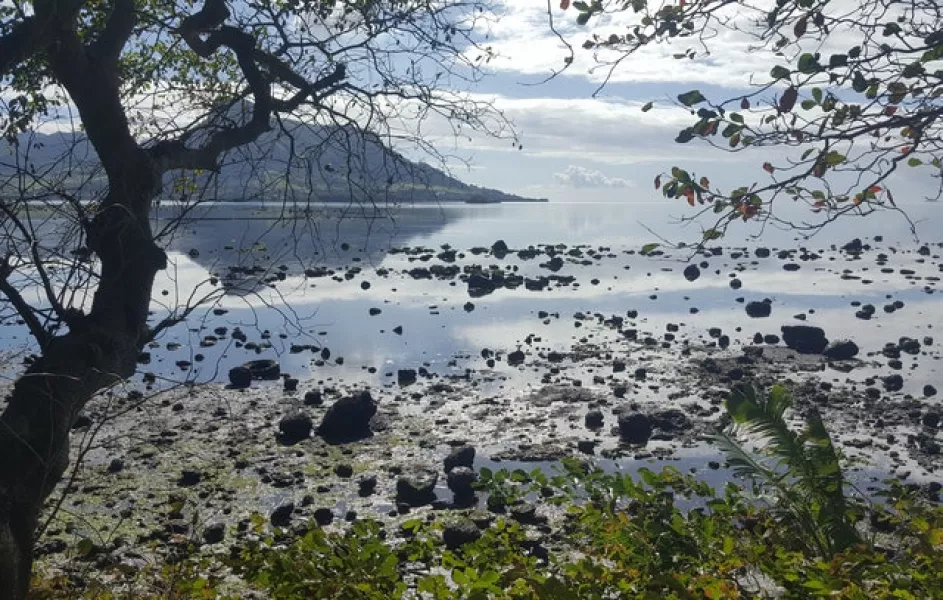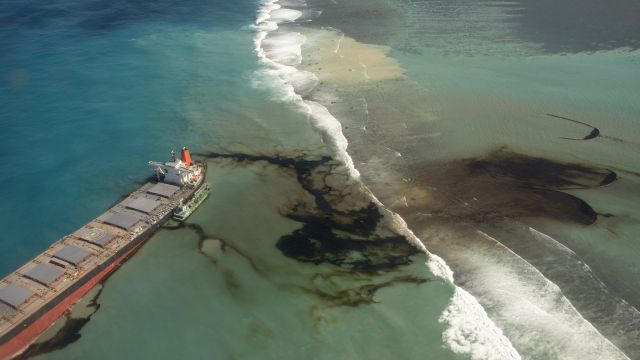Already more than 1,000 tonnes of the fuel has washed up on the eastern coast of Mauritius, polluting its coral reefs, protected lagoons and shoreline.
High winds and waves are pounding the Japanese bulk carrier MV Wakashio, which ran aground on a coral reef two weeks ago and is showing signs of breaking up and dumping its remaining cargo of oil into the Indian Ocean waters surrounding Mauritius.
“We are expecting the worst,” said Jean Hugues Gardenne of the Mauritian Wildlife Foundation.
“The ship is showing really big, big cracks. We believe it will break into two at any time, at the maximum within two days,” said Mr Gardenne. “So much oil remains in the ship, so the disaster could become much worse. It’s important to remove as much oil as possible. Helicopters are taking out the fuel little by little, tonne by tonne.”
French experts have arrived from the nearby island of Reunion and are deploying booms to try to contain any new oil spill, Mr Gardenne said. France sent a navy ship, military aircraft and technical advisers after Mauritius appealed for international help.
“The booms should be in place within hours, which we hope will help to protect the coastline from further damage,” he said.

The booms will boost the improvised barriers that thousands of volunteers in Mauritius created from fabric tubes stuffed with straw and sugar cane leaves.
Amid the rough seas, efforts are also under way to get other ships close enough to pump large amounts of oil out of the Japanese bulk carrier.
“The danger of the ship breaking into two is increasing hour by hour,” said Sunil Dowarkasing, an environmental consultant and former member of parliament in Mauritius. “The cracks have now reached the base of the ship and there is still a lot of fuel on the ship. Two ships are headed to the site so that fuel can be pumped into them, but it is very difficult.”
The Japanese-owned ship ran aground on July 25 but work to remove its oil only started last week when the ship cracked and started emptying the fuel into the sea.
Pressure is mounting on the government of Prime Minister Pravind Jugnauth to explain why it did not take immediate action to avert the environmental disaster. Mr Jugnauth has declared the oil spill a national emergency, but some residents say he acted too late.
The opposition and activists are calling for the resignation of the environment and fisheries ministers. Volunteers have ignored a government order to leave the clean-up operation to local officials.
Japan said it would send a six-member expert team to assist.







